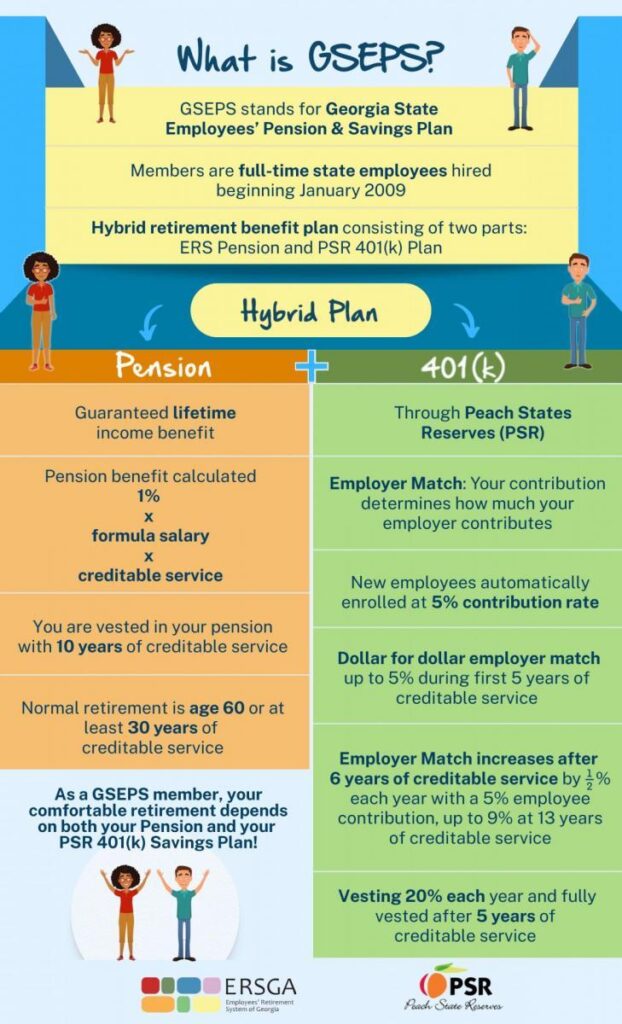State legislators are currently engaged in intense debate over proposed changes to pension plans for state workers. The discussions, which have drawn considerable attention from public employees, unions, and fiscal policy experts, focus on ensuring the sustainability of pension systems amid growing financial pressures. Lawmakers are weighing a range of options aimed at balancing the fiscal health of the state with the retirement security of its workforce. As the debate unfolds, stakeholders closely monitor potential impacts on benefits, contributions, and the long-term viability of these crucial retirement programs.
Table of Contents
- Legislators Weigh Financial Impact of Proposed Pension Plan Reforms
- Key Stakeholder Concerns Surface in State Workers Pension Debate
- Analysis of Funding Mechanisms and Long-Term Sustainability
- Experts Recommend Gradual Adjustments to Minimize Disruption for Retirees
- Wrapping Up
Legislators Weigh Financial Impact of Proposed Pension Plan Reforms
State legislators are intensely analyzing the fiscal repercussions tied to the proposed pension reforms, with budget experts warning of meaningful long-term costs. A recent proposal backed by public employee unions has drawn criticism for possibly increasing taxpayers’ financial burden by over $80 billion in additional pension contributions. Opponents argue that the enhanced benefits, while offering immediate relief to retirees, could destabilize state finances and delay efforts to achieve pension system solvency.
Supporters and detractors alike highlight several key points in their deliberations:
- Projected savings vs. added liabilities: Some federal analyses suggest reform could save billions, but state-level data indicates the opposite trend.
- Impact on future taxpayers: The potential for increased tax obligations to cover pension deficits remains a focal concern.
- Economic stability: The balance between honoring commitments to retirees and maintaining fiscal duty.
Key Stakeholder Concerns Surface in State Workers Pension Debate
As discussions intensify over proposed revisions to state workers’ pension plans, key stakeholders have voiced significant concerns regarding the potential impact on retirement security. Employee unions specifically question the sustainability of benefit reductions, warning that such measures could undermine morale and recruitment efforts within public service sectors. Meanwhile, fiscal watchdog groups emphasize the urgency of addressing ballooning pension liabilities to prevent long-term budgetary crises, advocating for a balanced approach that shields retirees from abrupt financial disruptions.
Voices from both sides highlight critical issues, including:
- The effect of proposed changes on current and future retirees’ financial stability
- The need for transparency in how pension fund assets are managed and allocated
- Possible shifts in employee contributions and state funding commitments
- Concerns over intergenerational equity and the fairness of benefit adjustments
Analysis of Funding Mechanisms and Long-Term Sustainability
Lawmakers are scrutinizing the current funding models that support state workers’ pension plans, with many expressing concern over the growing unfunded liabilities.The debate focuses on identifying more stable revenue streams and adjusting contribution rates to ensure the fund’s solvency over the coming decades. Several proposals advocate for a mix of increased employee and employer contributions, alongside exploring alternative investment strategies to boost returns without elevating risk exposure.
Key considerations raised during discussions include:
- Balancing fiscal responsibility with fair retirement benefits
- Mitigating the impact of market volatility on pension fund performance
- Ensuring transparency and accountability in fund management
- Addressing demographic shifts and longer life expectancies that strain pension payouts
Experts warn that without decisive action, the pension system may face escalating deficits, pushing states toward costly bailouts or benefit cuts.Legislators emphasize that any reform must carefully weigh short-term budget impacts against the long-term goal of enduring, reliable retirement security for public servants.
Experts Recommend Gradual Adjustments to Minimize Disruption for Retirees
Financial and retirement experts urge lawmakers to pursue a measured approach when implementing changes to pension plans for state workers.Sudden alterations could severely impact retirees who rely heavily on fixed incomes, including Social Security and pensions. By advocating for phased-in adjustments, experts believe disruptions can be minimized, ensuring retirees maintain financial stability while the system adapts. Recommended strategies include:
- Gradual benefit recalculations spread over multiple years
- Incremental contribution increases for current and future employees
- Clear communication channels to keep retirees informed of upcoming changes
This cautious transition aims to protect retirees from sudden losses and provide them with adequate time to plan and adjust their finances. Experts warn that abrupt policy shifts could lead to unexpected income shortfalls,affecting retirees’ quality of life. A collaborative dialogue between legislators, retirement specialists, and advocates is essential to craft solutions that balance fiscal responsibility with retirees’ welfare.
Wrapping Up
As the debate over state workers’ pension plans continues, lawmakers face mounting pressure to balance fiscal responsibility with the promises made to public employees. With stakeholders on all sides watching closely, the outcome of these discussions will have lasting implications for the state’s financial health and the retirement security of countless workers. Further deliberations are expected in the coming weeks as legislators aim to reach a decision that reflects both economic realities and the needs of state employees.

